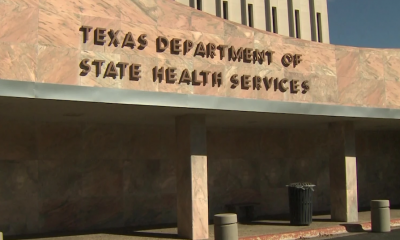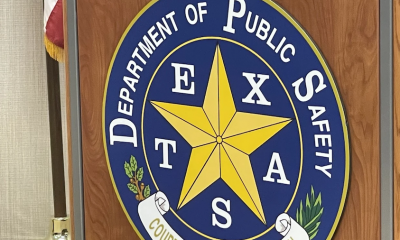Texas
It’s time for Texas to finally retire the Railroad Commission and PUC to create an energy agency

TX – No one will soon forget that Texas froze last month, vast portions of the state’s electric grid went dark, and millions of Texans lacked heat and running water for days. Many Texans died. Looking for answers, the Texas Legislature convened hearings for two long days. They summoned a dozen or more witnesses who sit atop corporate and government ladders with responsibility for the electric grid, most of whom accepted some shared responsibility for the failures.
Who didn’t? The Texas Railroad Commission and the Public Utility Commission, the two state agencies most squarely deserving of the blame.
They didn’t accept their responsibility for failing to enforce laws already on the books that would have prevented this catastrophe. Because our current representatives and agencies refuse to do their jobs, it is time for the Legislature to step up and provide real oversight for Texas’ energy needs.
Witness after witness, including those from the oil and gas industry, pointed to a root cause of the grid failure: Electric generation companies that rely on natural gas for fuel could not get enough gas and couldn’t get it delivered at the necessary pressure to run the generation equipment. Meanwhile, natural gas producers could not produce and compress the gas to deliver it to the generation plants because the electric grid had gone down.
The interdependence of gas production and electricity production resulted in an endless do-loop of failure, with both wholly reliant on the other and neither able to deliver. Half the grid’s capacity was lost in large part because of those two compounding failures.
“We need to recognize the interdependencies and we need to come up with a protocol between gas and power,” said Curt Morgan, the chief executive of Vistra, which owns many generation facilities. “There’s nothing that I can do, if the gas companies cannot get pressurized gas to us.”
When asked by our legislators to do so, did our elected and appointed representatives step up to own their role in the catastrophe? They did not.
Both Christi Craddick, chair of the misnamed Railroad Commission (our oil and gas regulator), and DeeAnn Walker, head of the Public Utility Commission (with jurisdiction over the electric grid), deflected blame entirely. According to Craddick, “My agency and the people I regulate did our job better than anyone else in our state.”
And Walker? When Rep. Rafael Anchia asked if she offered any apology to the public for the PUC’s failures in protecting the grid, she was silent. She later resigned under pressure from other officials and pointed blame at the Railroad Commission.
We simply cannot have our elected officials and commissioners appointed by Gov. Greg Abbott ignore their job duties and the laws they are charged with enforcing. People lost their lives because they failed us.
Take one example of a law already on the books that the Railroad Commission refuses to enforce. Flaring is the intentional lighting on fire of natural gas at the wellhead for no beneficial purpose. In 2019, oil and gas operators flared enough gas to power every home in Texas if the fuel had been converted to electricity.
Flaring has been illegal for over 100 years, yet the Railroad Commission grants operators flaring permits as exceptions to the law as a routine matter. That flared gas could be converted to electricity at the wellsite for the producers’ own needs; the generators designed for that purpose are available in the marketplace. Had oil and gas producers been forced to stop flaring, they may have done so, and they would have met their own power needs and been freed from overdependence on the grid.
To be plain: Had the laws against flaring been enforced by the Railroad Commission and that gas turned to electricity at the well sites, the grid failure would likely not have happened.
The Legislature should make sure that Texas’ laws against flaring are enforced, at a minimum. If it wanted to go further, it could incentivize microgeneration grids to manufacture electricity at scale from the flared gas. Oil and gas companies could thereby meet not only their own power needs but could also return enough electricity to the grid to improve electric reliability.
But the Legislature should not stop there. In full recognition of the dereliction of duties by the PUC and the Railroad Commission, as well as the holes in their ability to provide effective oversight, it is time to create a new agency to assume jurisdiction over our integrated energy portfolio and to plan for future needs.
This new agency should replace the Railroad Commission and PUC. It must be empowered and charged with thinking the problem through from beginning to end, making sure that obvious critical failure modes — such as the co-dependence of natural gas and electricity — are avoided. A newly-created Texas Energy Commission must be charged with the mission of balancing the full spectrum of Texas’ current and future energy needs, resources, production and delivery.
If we are to restore Texas’ reputation, now is the time for bold and decisive action.










